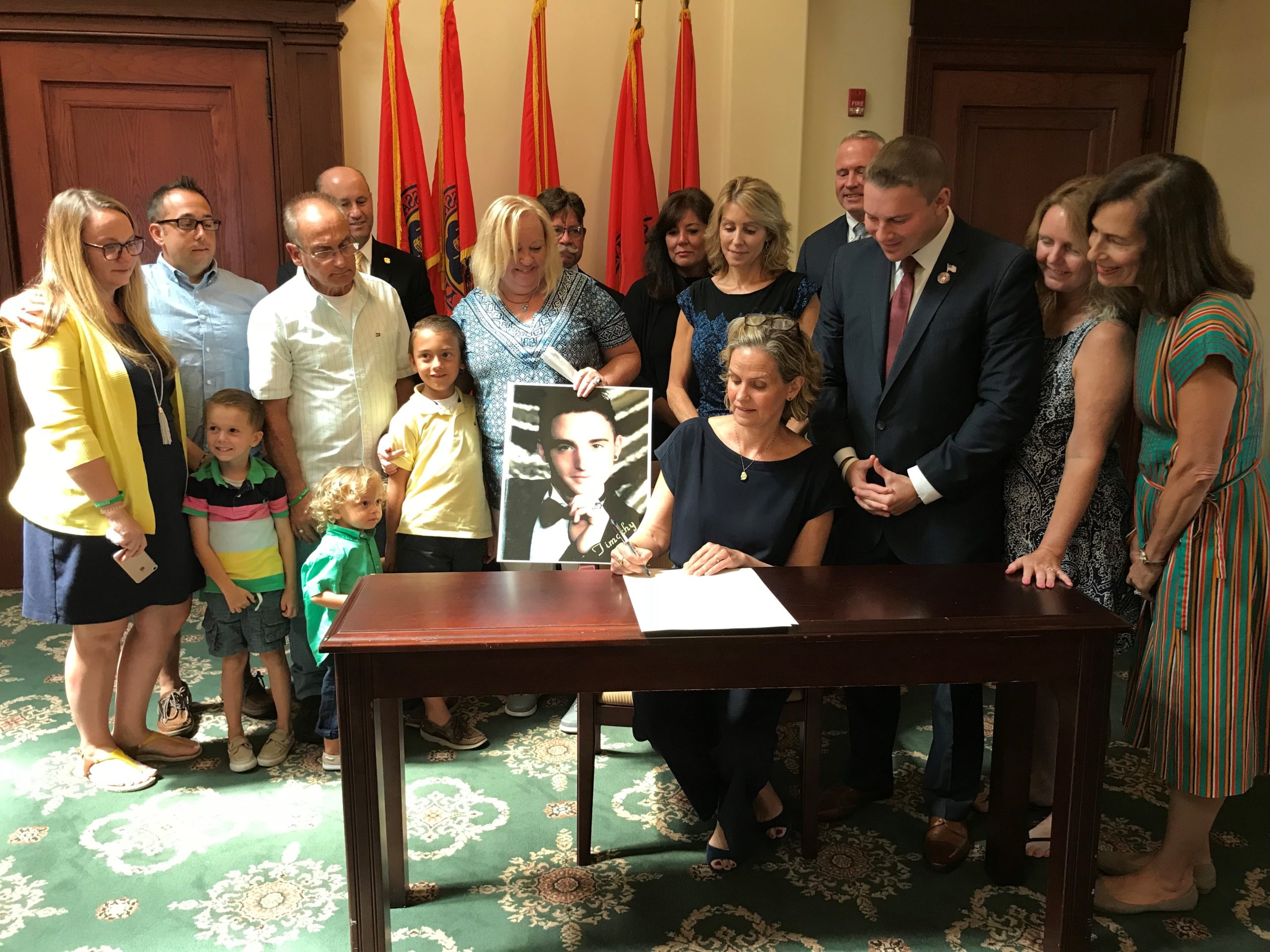Nassau County Executive Laura Curran signed a pair of laws Wednesday to create a 24-hour substance abuse hotline and app providing resources, with a goal of helping those “impacted by the opioid scourge.”
The two laws follow a promise Legislator Joshua Lafazan made eight years ago to Teri Knoll, who lost her 22-year-old son to an opioid overdose, that he would run for office and help her pass “Timothy’s Law” to reduce opioid deaths.
“Timothy’s Law” creates a 24-hour and toll-free substance abuse hotline.
Officials said that this, in turn, would make certified substance abuse counselors and trainees with experience in substance abuse counseling referrals available to residents.
The app, meanwhile, will offer resources for prevention, treatment and recovery, as well as a NARCAN training calendar and support hotline numbers.
“Since being sworn in as a Nassau County Legislator, my staff and I have been working diligently alongside County Executive Curran’s administration to devise new methods for reaching residents in crisis and guiding them to the help they need to find recovery from addiction,” Lafazan said. “I am truly grateful for my colleagues’ support for creating new, life-saving tools for reaching individuals who are caught in the grip of the opioid crisis.”
The hotline and app will be among the newest tools in Nassau County’s arsenal to fight deaths related to opioids, which is rising nationwide but declining overall in the county.
The bill’s signing comes on the heels of the U.S. Centers for Disease Control and Prevention releasing preliminary data showing that more than 72,000 Americans died from drug overdoses in 2017 – a 7 percent increase from the prior year.
Nassau County Police Commissioner Patrick Ryder, at a news conference in Farmingdale in June this year, said that fatal overdoses overall are down 7 percent in the county while non-fatal overdoses are down 30 percent.
At a forum with Great Neck parents back in June, Ryder highlighted a five-pronged program of education awareness, enforcement, diversion and treatment, as well as an ODMap that overlaps drug overdoses with larcenies so police know where to pool their resources.
Nassau County District Attorney Madeline Singas in a news conference back in March also underscored a focus on targeting drug dealers while giving addicts the option of going through diversion court and getting treatment.
Educational forums on opioid addiction and training sessions with Narcan, used to revive people who have overdosed, have also dotted the county and North Shore, appearing in libraries, schools and other places.



